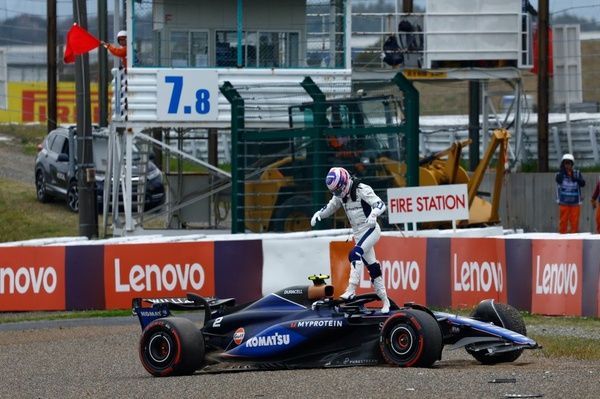FIA clarifies engine regulations
The FIA has cleared up some key grey areas in the engine regulations for this year relating to penalties and the implication of parc ferme regulations

Several Formula One outfits had sought further clarification about the final engine regulations, especially relating to the penalties applied for using a ninth power unit and when teams could change them.
McLaren F1 CEO Martin Whitmarsh told autosport.com earlier this month: "There is still some (confusion), because the regulations were accelerated out, I think some points have to be clarified.
"One of the points that isn't 100 per cent clear in the regulations is if you use your ninth engine do you get a penalty once, or every time you use the ninth engine? Logically, and it's everyone's belief that you get the penalty once, but it isn't explicitly clear in the regulations at the moment. There are a number of things that need to be clarified."
Following enquiries made by autosport.com, the FIA has now confirmed that the penalty applied for using an extra engine would only be levied at the first event it was used.
So if a driver used a ninth engine for the final two races of the season in Brazil and Abu Dhabi, he would only receive a penalty in Interlagos. Another penalty would only be issued if a driver used a further brand new engine.
FIA race director Charlie Whiting also confirmed the penalty was only applicable at the first event it was used.
"A driver would only get a penalty at the event during which the ninth engine is used," he said.
The FIA has also confirmed that teams will be allowed to make engine changes between qualifying and the race without penalty this year - but only if they can prove that there is a problem with their power unit.
Previously, any change from Saturday morning (outside of the free joker engine) resulted in a grid penalty, with parc ferme rules meaning that engine changes after the start of qualifying meaning being moved to the back of the grid.
However, Whiting has also confirmed that teams will be given a bit more flexibility this season - as long as there are genuine issues with the power units.
"Neither an engine, nor any parts of an engine, are on the list of parts which may be worked on or changed in parc ferme," he said.
"However, Article 34.1 does provide for additional work with the permission of the technical delegate. Permission is usually given if a team can satisfy us that there is something wrong with the part in question, if it is not completely evident anyway.
"Therefore, if a team was able to prove there was a fault with an engine they would probably be allowed to change it without penalty. However, if they broke the seals on the original engine to remedy the fault the engine could not be used again."
Article 34.1 of F1's Sporting Regulations relates to the post-qualifying parc ferme regulations, and details what teams may change on their car.
Although engines are not on the list of parts that may be exchanged, a clause in the regulations does open the door for a power unit replacement.
"Any work not listed above may only be undertaken with the approval of the FIA technical delegate following a written request from the team concerned," said the regulations.
"It must be clear that any replacement part a team wishes to fit is similar in mass, inertia and function to the original. Any parts removed will be retained by the FIA."
Be part of the Autosport community
Join the conversationShare Or Save This Story
Subscribe and access Autosport.com with your ad-blocker.
From Formula 1 to MotoGP we report straight from the paddock because we love our sport, just like you. In order to keep delivering our expert journalism, our website uses advertising. Still, we want to give you the opportunity to enjoy an ad-free and tracker-free website and to continue using your adblocker.














Top Comments